57 Basic Chinese Phrases 🗣 LTL’s Complete Guide to Chinese for Beginners
57 Of The Most Useful Basic Chinese Phrases To Learn In Minutes
Whether you’ve just started learning Chinese or you’ve just booked flights to the Middle Kingdom, there’s some important phrases you need to know.
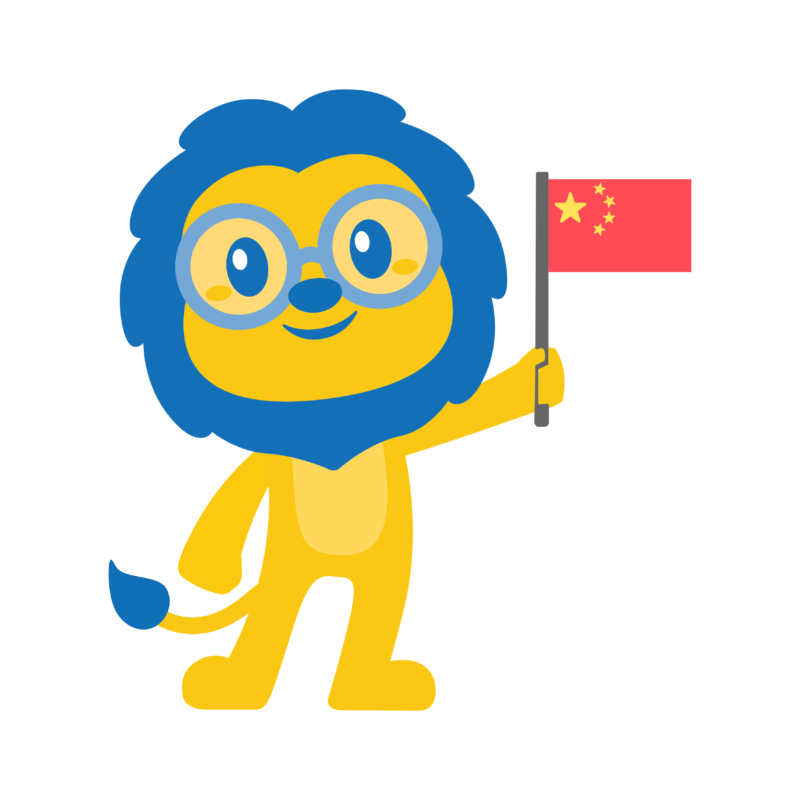
Being able to communicate some of the fundamentals is a great way to show local Chinese people that you’ve made an effort with the local language.
Being able to ask simple questions will also enhance your travel experience and make you feel more confident and independent.
In this blog post, we’re going to equip you with a treasure trove of basic (but essential!) Chinese phrases to help you navigate daily life more smoothly, whether that be asking for directions or taking your leftovers home.
Let’s take it away…
Basic Chinese Phrases || Excuse Me
Basic Chinese Phrases || Asking Where and What
Basic Chinese Phrases || Time and Directions
Basic Chinese Phrases || Shopping Phrases
Basic Chinese Phrases || Communication Phrases
Basic Chinese Phrases || At the Restaurant
Basic Chinese Phrases || Useful Vocab: Places and Emergencies
Basic Chinese Phrases || FAQs
Basic Chinese Phrases || Excuse Me
Just like they say, manners cost nothing!

Learning to say excuse me in Chinese is important because it not only makes you sound polite, it’s also a great way to grab someone’s attention to ask them a question.
So, here’s how to say it:
Excuse me
请问
Qǐng wèn
This literally means “please ask”.
If you’re new to Chinese, you might be wondering what the squiggly lines are above the i and e.
Chinese is a tonal language. This means that saying the same sound (such as ‘ma’) in different tones will actually change the meaning of the word.
But fear not! Our colleague Amy is here to help you out:
Basic Chinese Phrases || Asking Where and What
Where is…?
Asking where something is is an extremely important question.
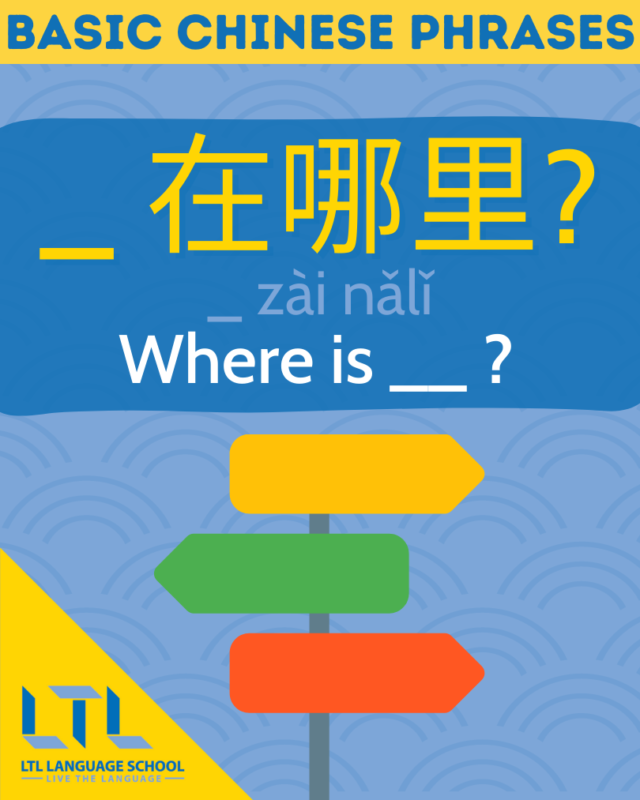
Whether you’re trying to find the best sights in Shangai, an exit in Beijng’s vast metro system or simply the nearest bathroom, you need to know how to ask!
Let’s take a look at how to do this:
Where is __?
__ 在哪里?
__ zài nǎlǐ?
To ask where something is, you simply fill in the gap with the appropriate noun. Let’s take a look at some examples:
Where is the toilet? 卫生间在哪里? Wèishēngjiān zài nǎlǐ?
Where is the stadium? 体育场在哪里? Tǐyùchǎng zài nǎlǐ
Where is the bar? 酒吧在哪里? Jiǔbā zài nǎlǐ
Don’t worry, if you don’t know how to say the name of something in Chinese, you could always point to something on a map or a picture of something and ask “在哪里?”
What is…?
Menus in China can be mysterious, so it helps to be able to ask exactly what something is. This also applies to souvinenirs, clothes and random things lying around your Chinese friend’s house.
But first, an important disinction to make is ‘this’ and ‘that’.
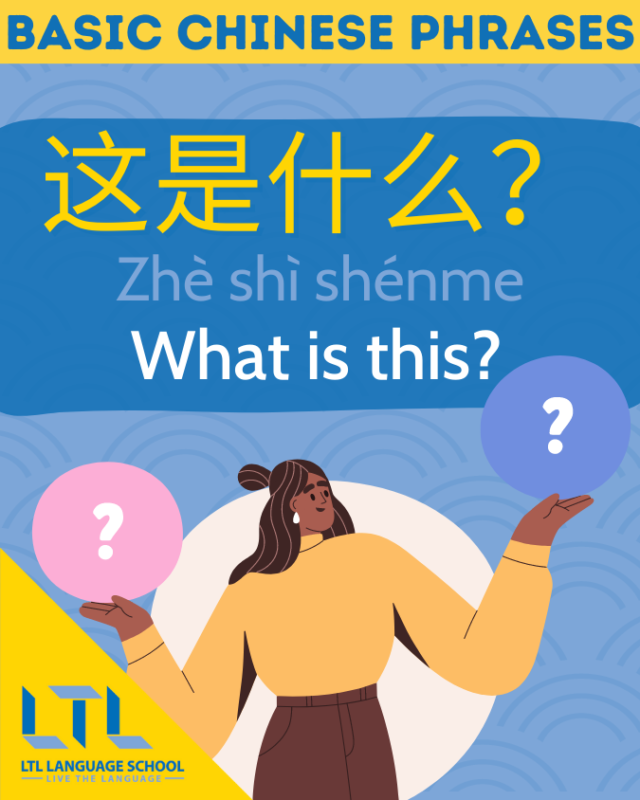
This 这 zhè
That 那 nà
Then, once you’ve decided whether you’re asking about ‘this’ or ‘that’, you simple add 是什么 (Shì shénme) which literally translates to “is what”? For example:
What is this? 这是什么?zhè shì shénme
What is that? 那是什么?nà shì shénme
PROTIP: 这个 (zhège) is one of the most useful words you can learn in Chinese. It means ‘this one’ and can be used in shops, cafes and pretty much anywhere that you can choose something.
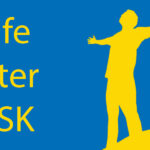
Life after HSK 🔝 What to do After You’ve Passed the HSK 6?
Life After HSK | You might be thinking how I show off my amazing Chinese now? How do I make sure it doesn’t 退步 (tuìbù, decline, go backwards)?
Basic Chinese Phrases || Time and Directions
What time is it?
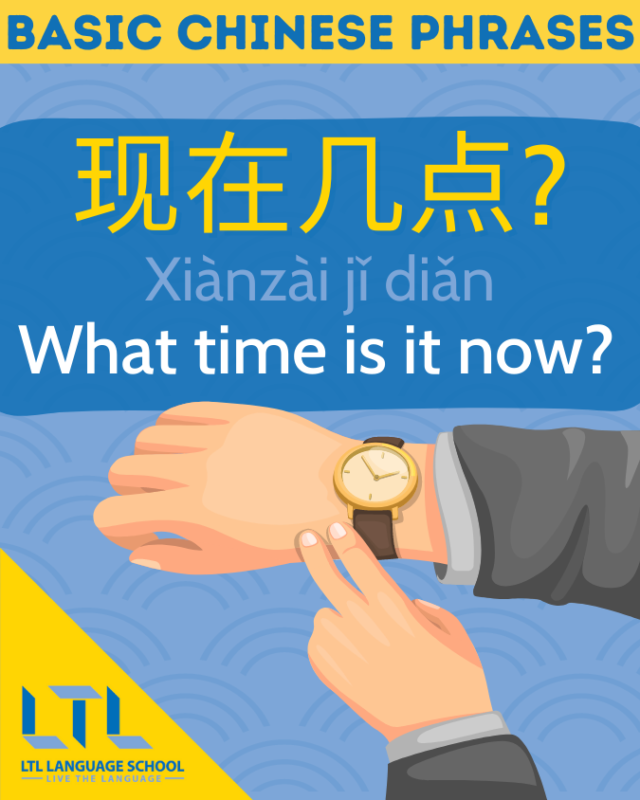
Time is of the essence, no matter where you are!
So it definitely helps to be able to ask this all important question:
What time is it?
现在几点?
Xiànzài jǐ diǎn?
Literally translated this becomes – now (现在) how many (几) hours (点).
It’s one thing to ask the questions, but being able to understand the answer is a whole other ballgame! To learn more about telling the time in Chinese, check out our comprehensive guide here.
China is huge, we all know that. But did you know how many times zones are in China? You might be surprised by the answer!
Directions
So we already covered ‘where is ___?’ above, but now we’re going to take a look at how to say three key phrases:
📍 How do I get to…?
📍 How far is …?
📍 Can you show me on a map?
And then we’ve even added in some extra vocab to help you ask about specific places!
How do I get to…?
Fancy a day out exploring the Great Wall or hiking Taiwan’s biggest mountain?
But before you get to these highly Instagrammable spots, you’re going to need to know how to get there.

You also will likely need to ask for directions at bus stations, railways and airports.
Remember: whilst you might be used to relying on Google Maps to get you from A to B, you won’t be able to access the app in China without a VPN.
Let’s take a look at how to ask:
How to I get to __?
怎么去 __?
Zěnme qù __?
To complete the sentences, all you need to do is add the name of where you’re going into the blank. Here’s some examples:
How do I get to the airport? 怎么去机场?Zěnme qù huǒ jīchǎng
How do I get to the train station? 怎么到火车站?Zěnme qù huǒchē zhàn
How do I get to Beijing? 怎么去北京?Zěnme qù běijīng
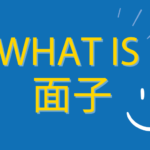
What is 面子 | A Guide to “Face” and Why it’s So Important in China
What is Mianzi 面子 and why is it so important? Today we take a look at an important part of Chinese culture – face.
How far is…?
Next up, it definitely helps to know whether that hotpot restaurant you’re plannng on going to is 5 miles away or 50.

It might also help you decide whether or not you want to hop in a taxi (we have a guide for that too!) or take your chances by foot.
So, here’s how to ask about distance:
How far is __?
__ 有多远?
__ yǒu duō yuǎn?
You probably guessed this already, but to complete the question, simply add the name of the place you want to go in the blank.
Can you show me on a map?
Sometimes it helps to get a visual idea of where you’re going, so you can picture the route or keep an eye out for noticeable landmarks.
Or sometimes you just don’t want to have the pressure of translating verbal instructions in Chinese- we’ve all been there!
Here’s how to ask:

Can you show me on a map?
你能在地图上给我看看吗?
Nǐ néng zài dìtú shàng gěi wǒ kàn kàn ma?
This one’s a bit of a mouthful, so here’s a breakdown of the sentence:
- 你能 – can you
- 在地图上 – on the Map
- 给我 – give me
- 看看 – to look
- 吗 – (question particle)
Directions vocabulary
And finally in our directions section, here’s some vocabulary you might find helpful when trying to find your destination!
- Left: 左边 – zuǒ biān
- Right: 右边 – yòu biān
- Straight:直 – zhí
- Behind: 后面 – hòu miàn
- Front: 前面 – qián miàn

Post Office in Chinese // Vocabulary Guide to Send Postcards & Parcels Homes
Dealing with the post office in Chinese might not be an easy task! We give you the necessary vocabulary and essential sentences to make it easier.
Basic Chinese Phrases || Shopping
Ok shopaholics (there’s a Chinese word for that too: 购物狂 gòuwù kuáng!) here’s some essential phrases to get you through your Chinese shopping trip!
Do you have…?

Here’s a very simple, very useful phrase.
Asking “do you have __?” can be applied pretty much anywhere, whether you’re chasing after a vanilla latte or a new game for your nintendo switch.
Do you have ___?
你有 __ 吗?
Nǐ yǒu __ ma?
The options really are endless with this one. Here’s a few examples:
Do you have salt? 你有盐吗? Nǐ yǒu yán ma?
Do you have it in blue? 你有蓝色的吗? Nǐ yǒu lán sè de ma?
Do you have English books? 你有英文书吗 Nǐ yǒu yīngwén shū ma?
And the list goes on!
How much is it?
As you browse through the (night) markets of Taipei or the high end shopping districts of Shangai, there will be many opportunities to use this phrase.
How much is it?
多少钱?
duōshǎo qián?
Literally this translates to “how many money?” – simple and to the point!
Don’t forget to brush up on Chinese numbers before you go on your shopping spree, it’ll help the process a lot smoother.
That being said, in our experience, a lot of small shop owners will often show you a number on a calculator to speed things along!
Do you have anything cheaper?
Hope you haven’t already forgotten the 你有__吗 (do you have__) structure already, it’s going to come in useful for this next one!
When going into Chinese markets, we always advise our students to haggle for a bargain.

It’s not unheard of to below less than 50% or even 25% lower than the original asking price!
But sometimes, you might just want to ask for cheaper alternatives.
Here’s how to ask:
Do you have anything cheaper?
你有便宜点的吗?
Nǐmen yǒu piányí diǎn de ma?
NOTE – Be aware of accents in China. In the North East, and Beijing, you’ll hear the 儿 (-er) sound a lot. So 便宜点 becomes 便宜点儿 (meaning diǎn sounds more like diǎr). Listen out for it
I need a bag

Whether it’s for your Chinese cooking essentials or all your new guided readers, it usually helps to have a bag (袋子 dàizi).
Just remember, some places in China may add on a small fee if you opt for a bag- that environment isn’t going to protect itself after all!
Luckily the way to ask for one in Chinese is pretty simple:
I need a bag.
我要一个袋子。
Wǒ yào yīgè dàizi.
If someone asks you whether you want a bag in Chinese (要袋子吗?yào dàizi ma or 要不要袋子 yào bù yào dàizi?) you can simply say 要 (yào, I want).
Can I pay with…?
China is fast becoming a cashless society (it’s not uncommon to see homeless people in China asking for money via QR codes) and so it helps to be able to ask about your options.
But before you pull out your Apple and Google pay apps, it’s important to know that two of the most popular methods of paying in China are Alipay and WeChat.
👉 Check out our Alipay Guide for Foreigners, including how to link foreign bank cards!
👉 If you’re not sure which one to choose, take a look at our WeChat Pay VS Alipay Guide Here
Here’s the basic sentence structure for asking about payment:
Can I use __?
我可以用 __ 吗?
wǒ kě yǐ yòng __ ma?

To ask about a specific payment type, you simply fill in the blanks, for example:
Can I use cash?
我可以用现金吗?
wǒ kě yǐ yòng xiàn jīn ma?
Can I use WeChat?
我可以用微信吗?
wǒ kě yǐ yòng wēi xìn ma?
Can I use Alipay?
我可以用支付宝吗?
wǒ kě yǐ yòng zhī fù bǎo ma?

44 Words You Have to Know Relating to Money in Chinese
44 Must Know Money Words in Mandarin 💰 Money in Chinese Show me the money in Chinese! Are you looking for terminology for dealing with cash in Chinese? Then you’ve landed on the right page. We’ll be covering the major…
Basic Chinese Phrases || Communication
No matter howmuch you practice, it can still be dauting to communicate in real life with native Chinese speakers!
Suddenly, you’ve gone from simple, slow textbook dialogues to a million-mile-an-hour Mandarin (or at least, it feels that way!)
So whilst we’d recommend you improve your Chinese listening skills with podcasts and TV shows, it still helps to have a few communication phrases in your back pocket for when things get a little tricky to understand!
So, first up…
Can you repeat that?

Some things are better the second time around- like our Chinese listening skills!
Here’s how to ask someone to say something again.
Can you repeat that?
再说一遍
zài shuō yí biàn
Let’s break that sentence down a little more:
- 再 again
- 说 say
- 一遍 one time
What if I don’t understand the second time?
You could ask them to repeat it again (third time’s the charm!), but you might still have trouble understanding. So instead, you could ask:
Can you speak a little slower?
Often, problems with communicating with natives arise from speed.

After all, you’d probably be hesitant to speak very slowly with someone in English as you wouldn’t want to appear patronizing.
But asking someone to slow down can make a massive difference to your comprehension ability! Here’s what to say:
Speak a little slower
说慢一点
shuō màn yì diǎn
And if all else fails, we’d definitely recommend you take the time to learn the following useful phrase!
Can you write that down?

This phrase isn’t just super helpful if you’re stuck mid-conversation.
You could also get a taxi driver to write down the name of some famous sights or nearest metro stop and then you can show someone else the Chinese, job done!
So, here’s how to make that handy request:
Could you write that down?
你可以写下来吗?
Nǐ kěyǐ xiě xiàlái ma?
Basic Chinese Phrases || At the Restaurant
Have you heard of the Eight Great Chinese Cuisines?
Trust us when we say you’re going to want to try them all!
Now that you’ve already learned how to say ‘what is this?’ and ‘do you have __?’, let’s look at some useful phrases for the end of your meal.
Asking for the bill
You’d be surprised at how easy it is to ask for the bill in Chinese.

In fact, you only need to learn to say two syllables!
Unlike in English, you can get away without say “Can I pay the bill” and simply say “pay the bill”.
Oh and depending on the restaurant, you might be shouting this rather than saying it!
Pay the bill
买单
măi dān
Takeaway leftovers

With so many different dumplings to try, it’s easy to get carried away and order too much food.
Again, you only need to learn two syllables to be able to take your leftovers home. Efficiency!
Here’s how to ask:
I want to takeaway
打包
dǎ bāo
The literal meaning of this is actually “to pack”. We just wish we could really pack all the delicious local food in our suitcases!
Basic Chinese Phrases || Useful Vocab
Last and certainly not least, we’ve included some useful vocabulary to help you survive your time in China.
Specifically, we’ve included some need-to-know place names and emergency words.
Places
👉 For a full guide on places in Chinese, including over 100 words and phrases, check out our ultimate guide here
- Place: 地方 – dì fāng
- Hotel: 酒店 – jiǔ diàn
- Airport: 机场 – jī chǎng
- Train: 火车 – huǒ chē
- Bus station: 汽车站 – qì chē zhàn
- Supermarket: 超市 – chāo shì
- Restaurant: 餐厅 – cān tīng
- Coffee Shop: 咖啡馆 – kā fēi guǎn
Emergencies
Hopefully these aren’t words that you’ll have to use much, but it’s always better to be prepared!
👉 Should you need to visit the hospital during your stay in China, take a look at our Health in Chinese guide, which includes describing symptoms and talking about illnesses.
- Help: 帮助 – bāng zhù
- Caution: 谨慎 – jǐn shèn
- Danger: 危险 – wēi xiǎn
- Emergency: 紧急 – jǐn jí
- Fire: 火 – huǒ
Like what you’ve read? Then you’ll probably enjoy these as well!
- Learn some of the most basic and useful phrases in Mandarin Chinese
- 30+ basic Japanese phrases for tourists to learn
- Get to grips with beginner Vietnamese phrases for travellers and tourists
- Learning Korean? Then you’ll want to learn some basic Korean phrases
- Discover Russian with 40+ phrases for beginners
Basic Chinese Phrases || FAQs
How do you say “What is this” in Mandarin?
What is this – 这是什么
Pinyin 拼音 – Zhè shì shénme
How do you say “What time is it” in Mandarin?
What time is it – 现在几点(种)
Pinyin 拼音 – Xiànzài jǐ diǎn (zhǒng)
How do you say “How do I get to…” in Mandarin?
How do I get to – 怎么去—
Pinyin 拼音 – Zěnme qù—
How do you say “Do you have anything cheaper” in Mandarin?
Do you have anything cheaper – 你们有便宜点的吗
Pinyin 拼音 – Nǐmen yǒu piányí diǎn de ma
How do you say “Restaurant” in Mandarin?
Restaurant in Mandarin is 餐厅 – cān tīng.
Want more from LTL?
If you wish to hear more from LTL Mandarin School why not join our mailing list? We give plenty of handy information on learning Chinese, useful apps to learn the language and everything going on at our LTL schools!
Sign up below and become part of our ever-growing community!
BONUS || Want to study Chinese with us in Chengdu? Why not check out our group courses or individual Chinese classes.

 Hi, my name is Sabatino. I am from Italy and I am a Student Advisor at LTL. Fancy coming to study with us in China?
Hi, my name is Sabatino. I am from Italy and I am a Student Advisor at LTL. Fancy coming to study with us in China? Hi, my name is Mojca. I am from Slovenia in Europe and I work as a student advisor at our Chengdu school.
Hi, my name is Mojca. I am from Slovenia in Europe and I work as a student advisor at our Chengdu school.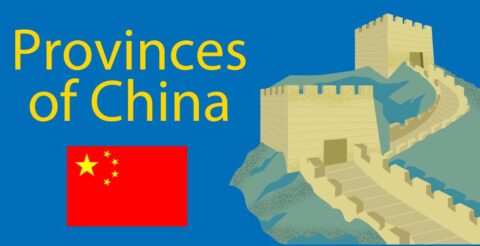
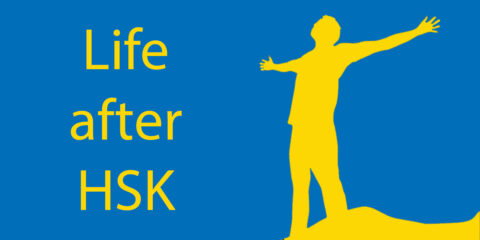
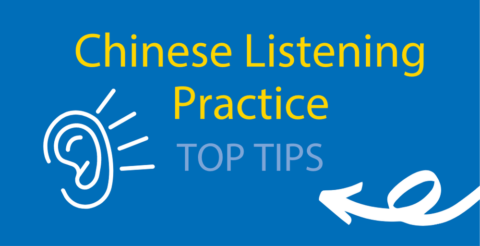
4 comments
Chinese languages is based on the official dialect of China is Mandarin, also call “Putonghua”. More than 70% of the Chinese population speaks Mandarin,but there are also several other major dialects in use in China: Yue (Cantonese),Xiang (Hunanese), Min dialect, Gan dialect, Wu dialect, and Kejia or Hakka dialect. Linguists believe that there are 297 living languages in China today.
These languages are geographically defined, and are found in mainland China,Taiwan, Hong Kong, and Tibet. Mandarin Chinese is the most popular language in China, with over 955 million speakers out of China’s total population of 1.21 billion people.For an official language of China and Singapore, also known as Mandarin, see Standard Chinese Version. Mandarin, which is probably the most recognized form of Chinese language, is just a dialect.Many differences distinguish the Chinese dialects from one another.Despite the number of dialect, Pǔtōnghuà or Mandarin Chinese is the country’s official language since the 1930’s.Mandarin is the top language among the groups. It’s also known as Northern Chinese, which is spoken by about two-thirds of the Chinese population.Other names for Mandarin include Standard Chinese, Beijinghua, Zhongguohua and Beifang Fangyan.
In China alone, Mandarin is spoken as a first and second language by 1.082 billion people.Chinese is spoken by 1.3 billion people around the world was made in China.
Exactly right Karen – I wrote more about Chinese dialects here to clear up some common misconceptions – https://ltl-taiwan.com/chinese-vs-mandarin/
Hope it’s useful 🙂
This is great for beginners
Delighted to hear it Finn